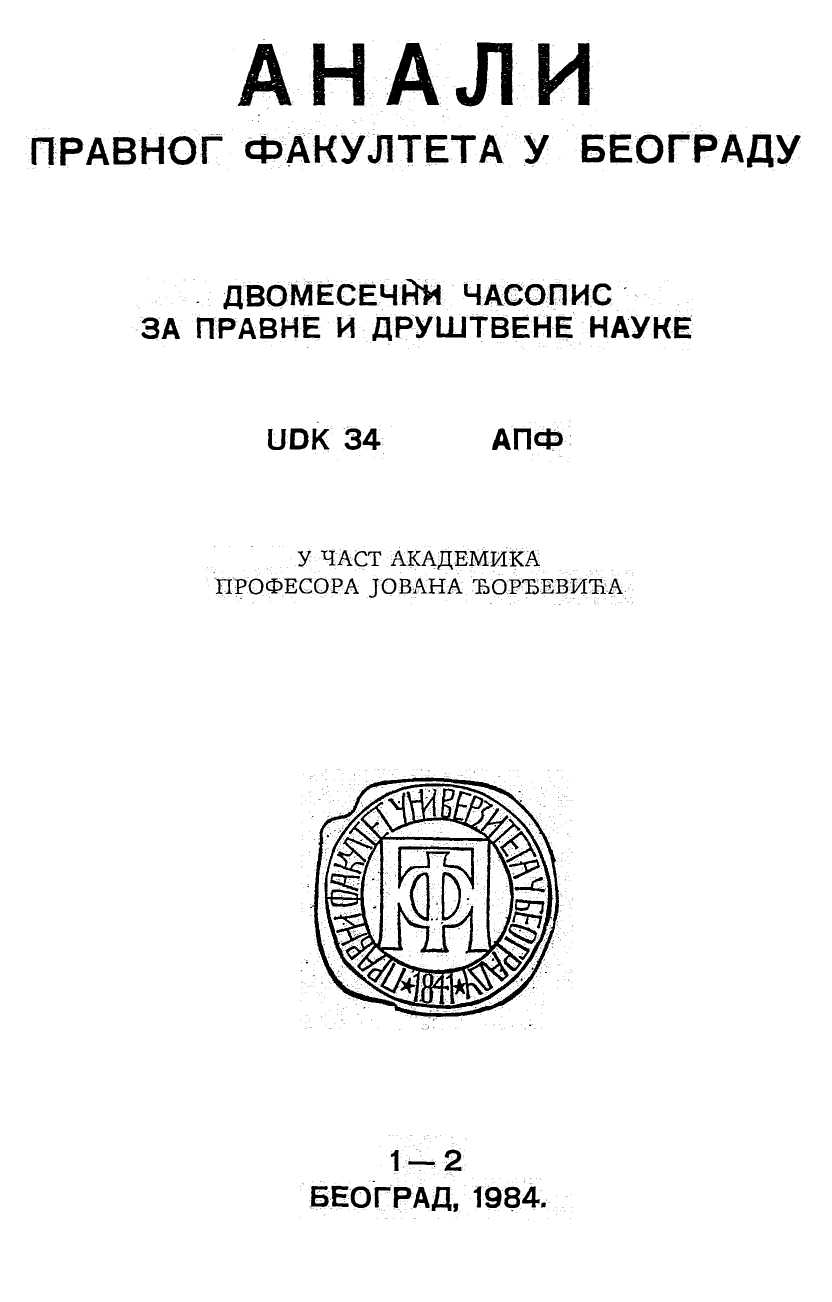НОВИ УСТАВ HP КИНЕ — ЗНАЧАЈАН КОРАК У РАЗВОЈУ СОЦИЈАЛИСТИЧKЕ УСТАВНОСТИ
NEW CONSTITUTION OF P.R. OF CHINA — A SIGNIFICANT STEP IN THE DEVELOPMENT OF SOCIALIST CONSTITUTIONALITY
Author(s): Zlatija Đukić-VeljovićSubject(s): Law, Constitution, Jurisprudence, Constitutional Law
Published by: Правни факултет Универзитета у Београду
Summary/Abstract: The New Constitution of P.R. of China, drafted in December 1982, represents a significally elaborated document in regard to the preceding three constitutions. In it is clearly noted the effort to be less principle and declarative, and in this way to serve as a basis for the establishing of new processes and for the opening of a new phase in the development of the Chinese political system. There is a certain link between this constitution with the one of 1954 which cannot be said for the constitutions of 1975 and 1978. A particularly significant new feature of the Chinese constitution is the re-affirmation of the constitution itself as a „basic law of the country, that has the supreme legal power, that all must accept as a basic norm of behaviour and whose dignity must be supported. Such a provision was contained by the constitution of 1954, while the following two constitutions did not proclaim the principle of constitutionality. In the text of the constitution a significant position was given to the principle of legality. The People’s Republic of China is defined by the Constitution as a „socialist state of people-democratic dictatorship, lead by the working class and which rests on the alliance of workers and peasants". The widening of the rights of the state enterprises in decision making and business, as well as the participation of workers in the democratic managing of the enterprises, also represent an interesting new feature of the constitution. There .are significant changes in the character and role of people's communes. The essence of these changes are the doing away with the commune as a political institution. The commune has been affirmed as an organizational form of collective rural economy. Also interesting are the new features in regard to the rights of the citizen, the strengthening of the principle of the unity of powers, local self- -rule, the judical system and others.
Journal: Анали Правног факултета у Београду
- Issue Year: 32/1984
- Issue No: 1-2
- Page Range: 39-47
- Page Count: 9
- Language: Serbian

